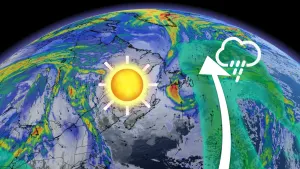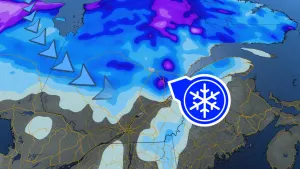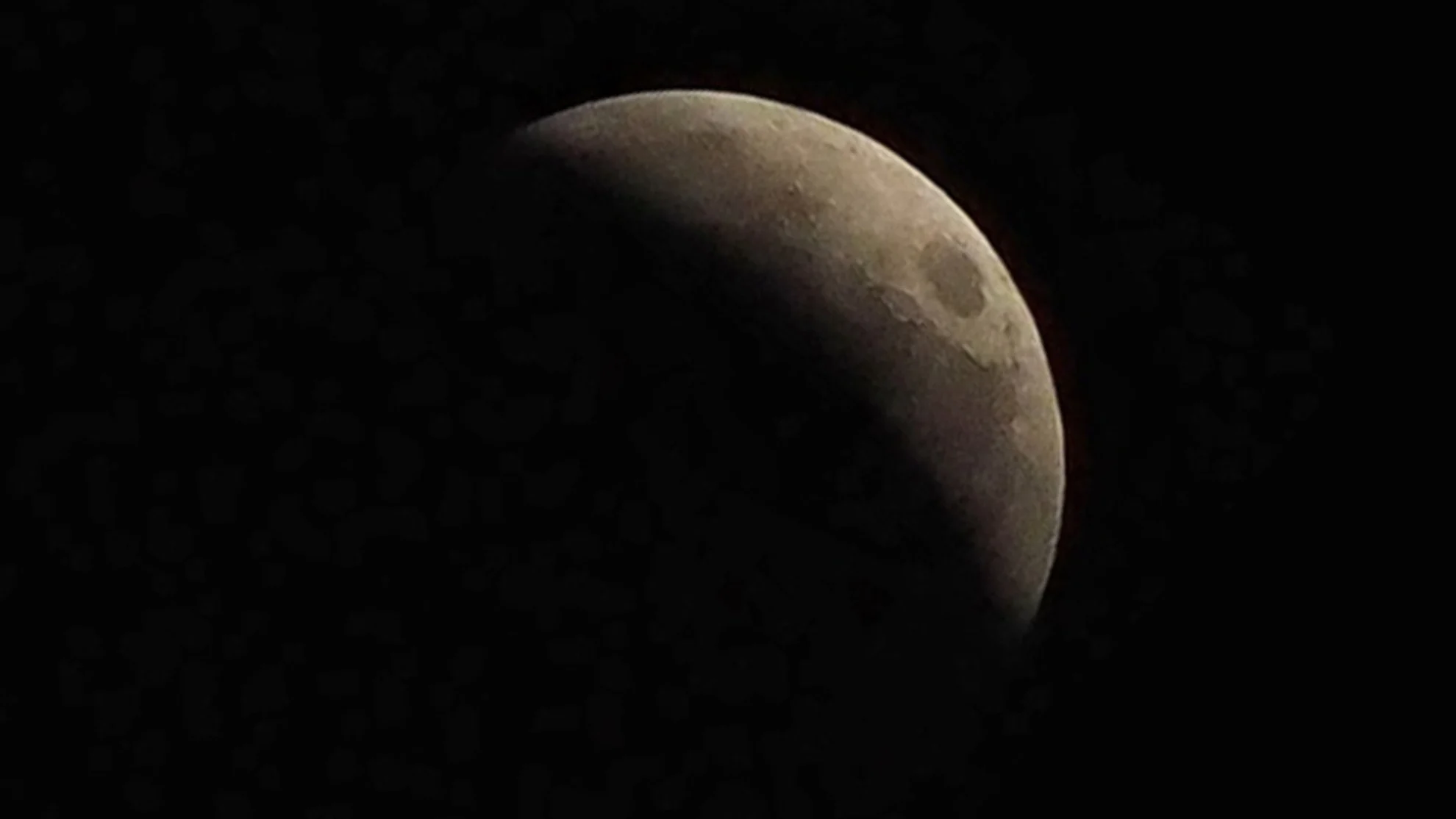
How the Full Moon briefly vanished, nearly a thousand years ago
On this day in weather history, an extremely rare 'dark' lunar eclipse occurred on the 5th of May, in the year 1110, but how?
This Day In Weather History is a daily podcast by Chris Mei from The Weather Network, featuring stories about people, communities and events and how weather impacted them.
--
According to records over nine hundred years old, witnesses reported that the Full Moon briefly vanished from the sky during a total lunar eclipse.
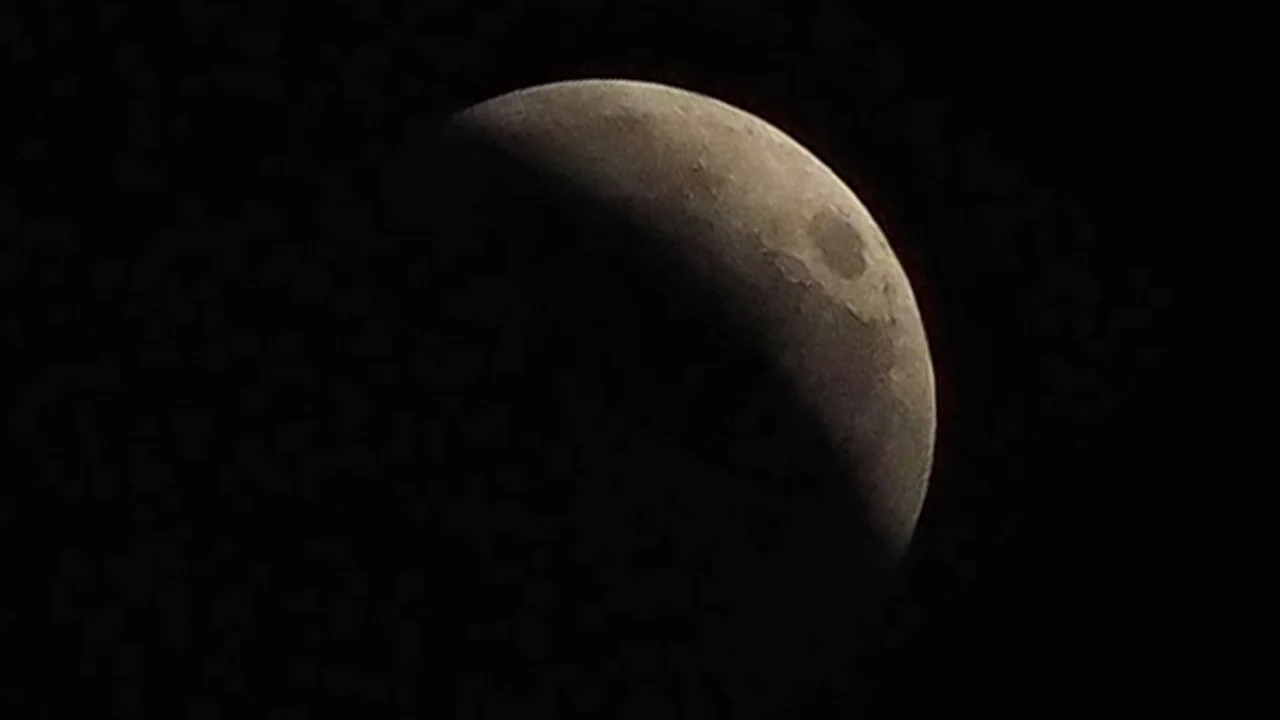
This image of the Super Blood Wolf Moon total lunar eclipse was shot on January 20, 2019, from Richmond, BC, before the Moon was completely enveloped in Earth's shadow. Credit: Tony Venezuela/UGC
According to the Peterborough Chronicle, which catalogued noteable events throughout out England's history, in the year 1110: "On the fifth night of the month of May the moon appeared shining brightly in the evening, and afterwards his light waned by little and little, and early in the night he was so wholly gone that neither light, nor circle, nor anything at all of him was to be seen, and thus it continued till near day, and then he appeared shining full and bright; he was a fortnight old the same day: the sky was very clear all the night, and the stars shone very brightly all over the heavens, and the fruit trees were greatly injured by that night's frost."
How did this vanishing act occur, though?
During a total lunar eclipse, the Moon passes directly through Earth's shadow. First, it simply grows dimmer, then it appears as though a great disk of darkness slowly advances across its face until it is completely immersed in the darkest part of the shadow, the umbra. That is when we see it shine with the familiar dusky red colour we've come to expect during one of these events.
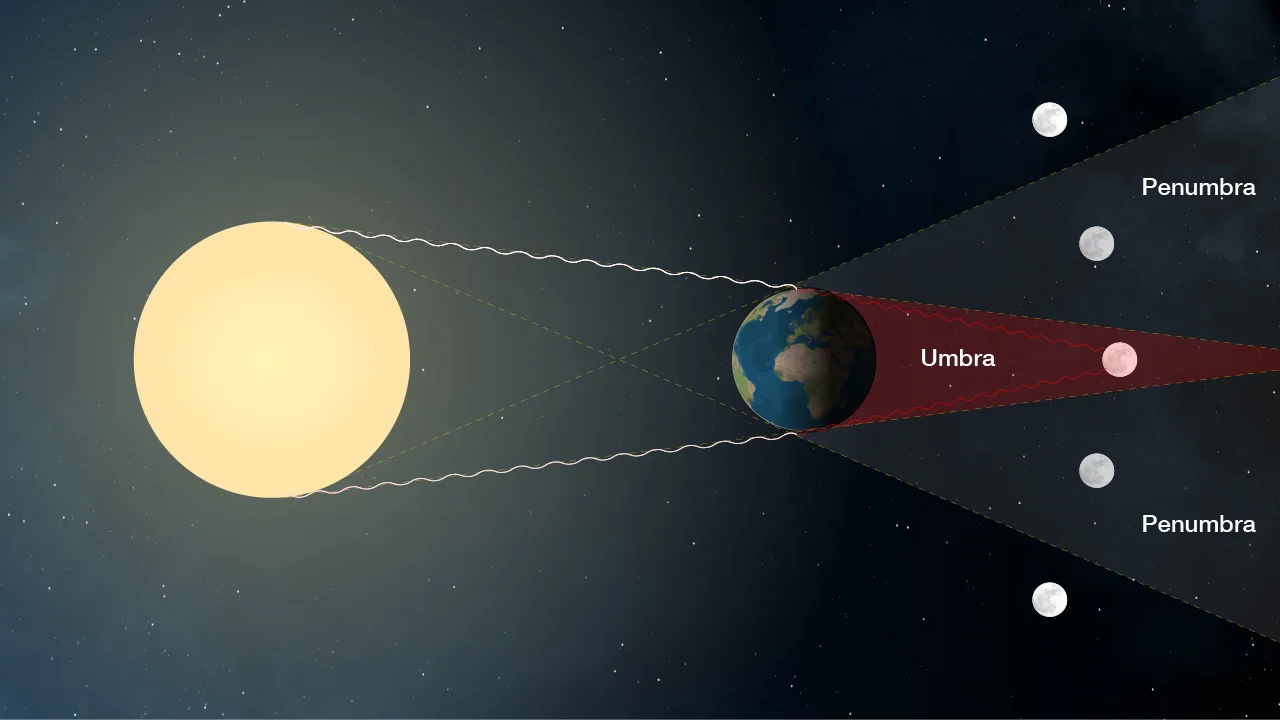
This exaggerated diagram shows how Earth's shadow is split into two parts, the dark red umbra and the more diffuse penumbra. Credit: NASA
At no time does the Moon appear to vanish, though. So, what happened during the May 5, 1110 eclipse to cause the Moon to disappear from sight?
The red colouration we see during a total lunar eclipse is from sunlight filtering through the planet's atmosphere. Essentially, it is the red tinge of every sunrise and sunset happening on Earth at the time, shining into the umbra and onto the Moon, all at once.
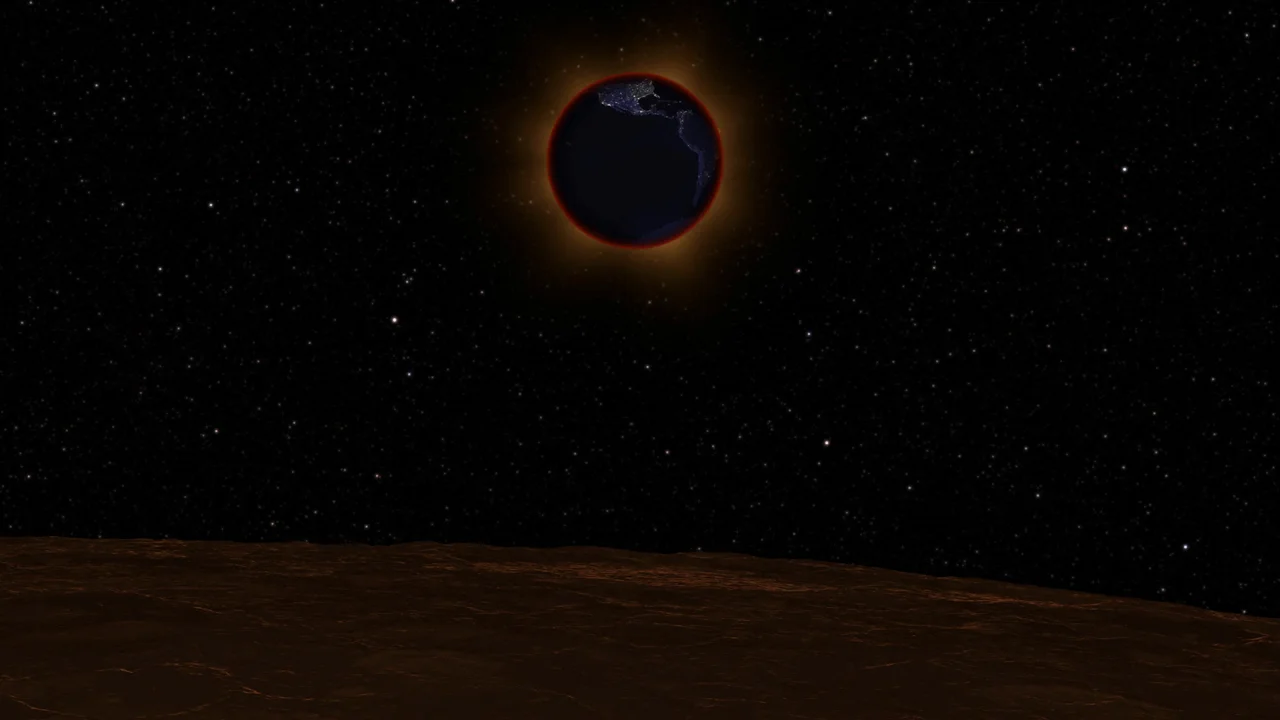
This simulated view shows what an astronaut on the Moon would see during a total lunar eclipse — all of Earth's sunrises and sunsets, all at once. Credit: NASA
What happens, though, if Earth's atmosphere doesn't allow any light to escape and shine into the umbra?
This appears to be what happened in 1110. As reported in a study published in 2020, scientists found that a series of eruptions of Japan's Mount Asama, starting two years before in August to October of 1108, may have been responsible.
During powerful volcanic eruptions, ash and other fine particles are blasted up into the stratosphere, high above the ground, where they can linger for years. The extra scattering of light produced by these particles can treat us to some vivid red sunsets. At the same time, though, they can completely scatter the visible light before it can escape back into space and shine into the umbra. Thus, a uniform blackness would replace the umbra's typical hue, and an eclipsed Moon could appear to vanish from the sky.
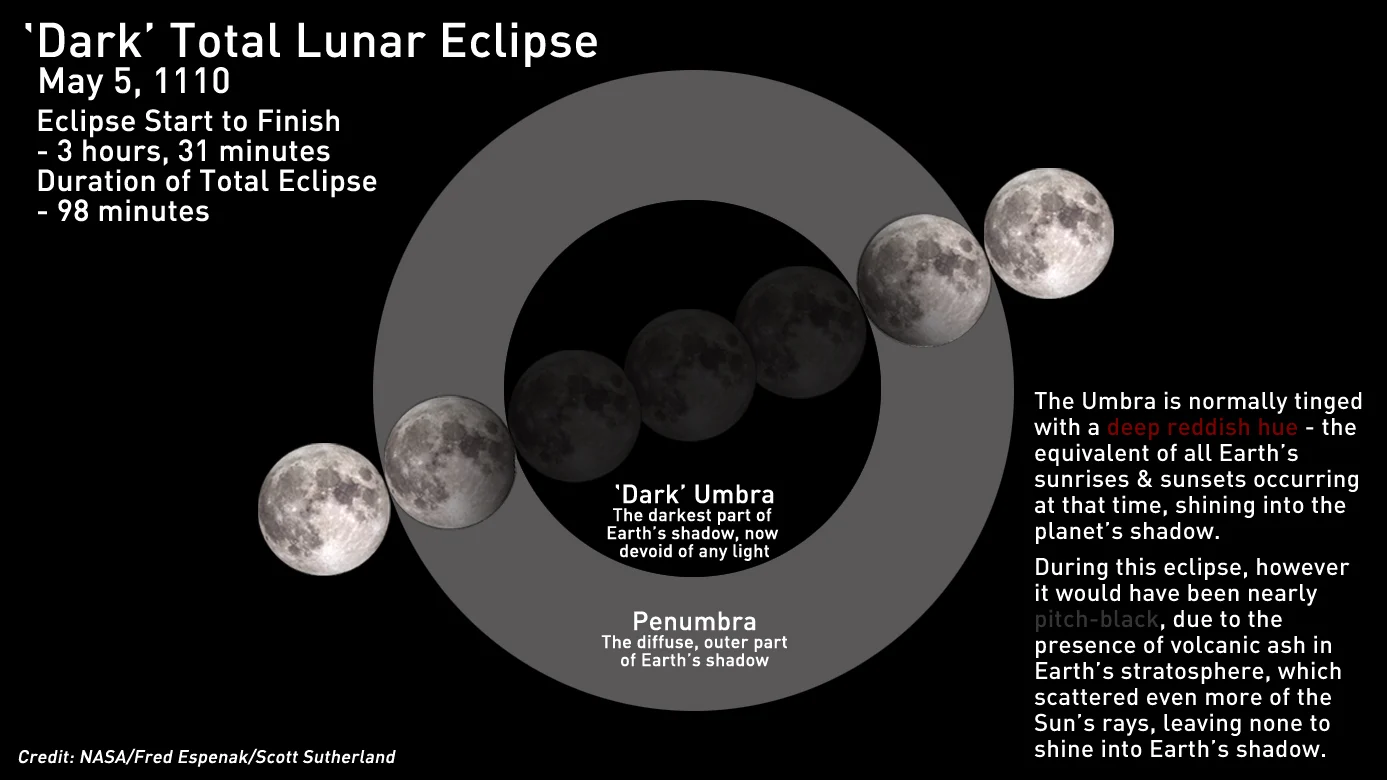
Although such a 'dark' lunar eclipse is extremely rare, it is possible that one could happen again. It only requires a sufficiently powerful volcanic eruption and an appropriately timed eclipse.
The next total lunar eclipse is the Super Blood Flower Moon, which will be visible across parts of Canada on the morning of May 26, 2021, with western regions of the country getting the best view.
Subscribe to 'This Day in Weather History': Apple Podcasts | Amazon Alexa | Google Assistant | Spotify | Google Podcasts | iHeartRadio | Overcast'







